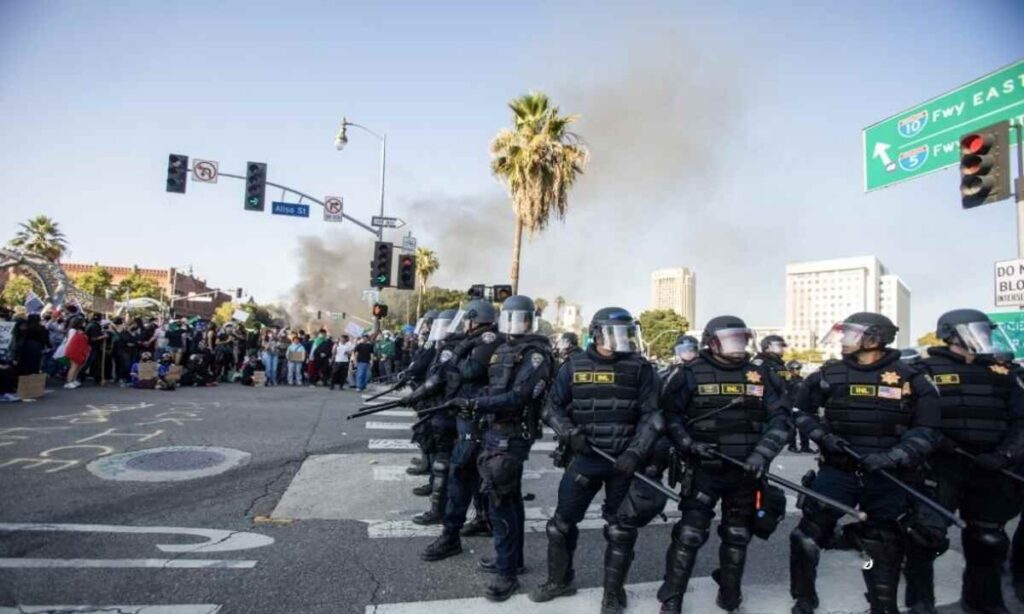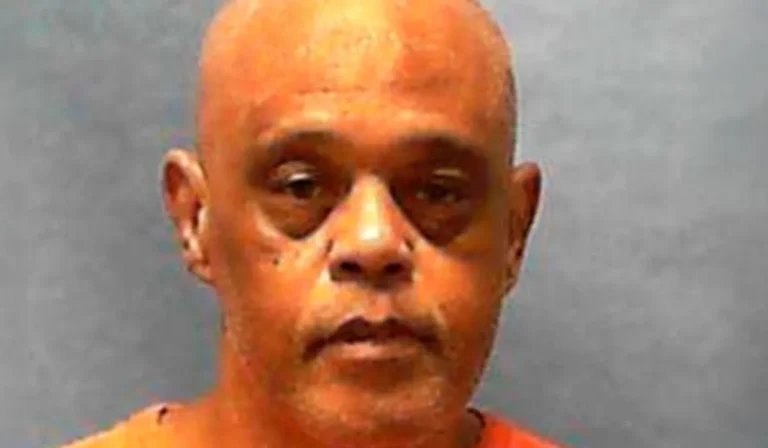
Police use tear gas to disperse protesters in downtown Los Angeles. Photo by Ringo Chiu/AFP)
Los Angeles , US (EPICSTORIAN) Police ordered the public to disperse from downtown Los Angeles on June 6 after escalating unrest, where several cars were torched and security forces fired tear gas to control protesters.
The unrest followed the controversial deployment of National Guard troops to the area, marking a rare military presence in the city, the second-largest in the United States.
Protests erupted following immigration raids that led to dozens of arrests, mostly targeting individuals alleged to be illegal migrants and gang members.
The raids have sparked widespread outrage in this diverse city, home to a large Latino community deeply affected by immigration policies.
Rising Tensions in Downtown Los Angeles Spark Protests
The deployment of National Guard troops, typically under the authority of California’s governor, was ordered by President Donald Trump, who has made immigration enforcement a cornerstone of his second term.
Critics argue this move deliberately heightened tensions in downtown Los Angeles, intensifying the protests rather than calming the situation.
Authorities in downtown Los Angeles warned that further disturbances would be met with increased force, aiming to restore order after nights of clashes between demonstrators and law enforcement.
Security forces utilized tear gas as a crowd-control tactic during the chaotic scenes in the city’s downtown core.
Impact of Immigration Raids on Downtown Los Angeles Community
The recent immigration enforcement operation, which sparked protests in Los Angeles, focused on arresting alleged illegal immigrants linked to gang activity.
Community leaders have condemned the raids as disruptive and harmful, emphasizing the growing fears and mistrust between local populations and authorities.
Also read:U.S. Supreme Court Grants DOGE Full Access to Social Security Data
The unrest underscores the fragile social climate in downtown Los Angeles, where immigration remains a deeply polarizing issue.
Residents and activists continue to demand a more humane approach to immigration enforcement and criticize the use of military forces on urban streets.

